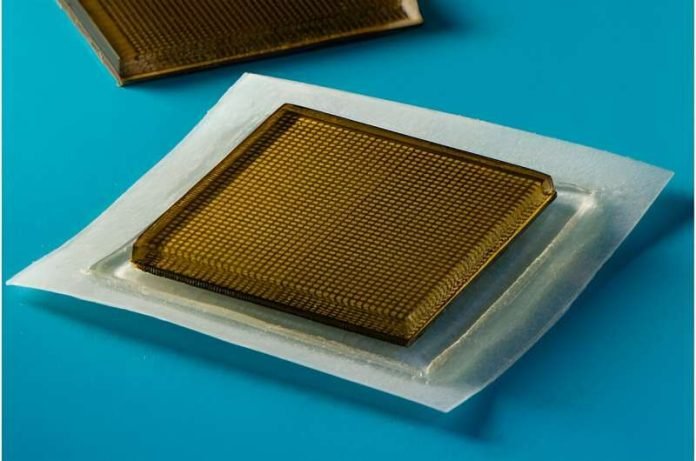
MIT engineers have made a significant leap forward in medical diagnostics with the development of a new ultrasound sticker.
This tiny, innovative device, about the size of a postage stamp, can be adhered to the skin to continuously monitor the stiffness of internal organs, offering a non-invasive way to detect early signs of diseases like liver and kidney failure and the progression of solid tumors.
Published in Science Advances, the study explains how the sensor emits sound waves that penetrate the skin, bounce off internal organs, and return to the sticker.
The returning wave patterns act as signatures of organ rigidity, which the sticker can measure and track over time.
According to Xuanhe Zhao, the senior author of the paper, this technology is pivotal for the early diagnosis of internal organ failure, as many diseases result in organs becoming stiffer over time.
The ability of the sticker to continuously monitor changes in organ stiffness is a game-changer in medical diagnostics. In tests conducted on rats, the device successfully detected early signs of acute liver failure by measuring liver stiffness continuously for 48 hours.
This capability is particularly important for patients recovering from organ transplants in intensive care units (ICUs), where continuous monitoring of organ rigidity can play a critical role in post-operative care.
The researchers aim to adapt the sticker for human use, envisioning its application in ICUs to monitor transplant patients.
The sticker’s low-profile design allows for non-intrusive, continuous monitoring, potentially enabling earlier detection of organ failure or rejection.
The technology behind the ultrasound sticker is an advancement from previous versions designed for imaging deep tissues and organs. The sticker focuses on detecting shear waves, which provide information on organ rigidity.
The design incorporates 128 miniature transducers on a 25-millimeter-square chip, made possible by cutting-edge fabrication techniques.
These transducers convert electric fields into sound waves, and the chip’s hydrogel-adhesive underside ensures efficient sound wave transmission into and out of the body.
Preliminary experiments have shown the sticker’s efficacy in detecting liver stiffness changes in rats, indicating acute liver failure well before traditional symptoms become apparent.
This early detection capability could significantly improve patient outcomes by alerting medical staff to changes in organ condition before severe damage occurs.
The team at MIT, along with collaborators, is working to bring this technology to clinical settings.
They envision a future where the sticker, possibly in a more portable, self-contained form, could be used not only in hospitals but also at home for long-term monitoring of various conditions, including the hardness of solid tumors.
This innovation represents a significant step towards more personalized and proactive healthcare, enabling continuous monitoring of vital organ health with minimal intrusion.
If you care about liver health, please read studies about a diet that can treat fatty liver disease and obesity, and coffee drinkers may halve their risk of liver cancer.
For more information about liver health, please see recent studies that anti-inflammatory diet could help prevent fatty liver disease, and results showing vitamin D could help prevent non-alcoholic fatty liver disease.
The research findings can be found in Science Advances.
Copyright © 2024 Knowridge Science Report. All rights reserved.



